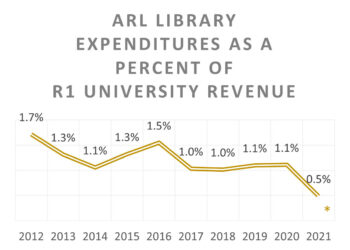
Even during a two-week break, the brain keeps thinking. In fact, in a more relaxed state, thinking improves. So, naturally, a few thoughts popped into my head while I was away. But, because I wasn’t blogging, the ideas remain rather ill-formed and brief. Here they are:
We Are in the Midst of an Ego Epidemic: In the late 19th and early 20th centuries, the railroad barons, oil magnates, and banking emperors of the era began philanthropic pursuits — but they did so in a way that many modern philanthropists might find perplexing. That is, the Rockefellers, Carnegies, and others gave their money to experts, whom they entrusted to create the best universities, the best parks, or the best hospitals. These people knew expertise was different from success. Now, it seems that people who think they’re good at one thing think they’re good at everything — from players becoming coaches to actors becoming thinkers to entrepreneurs becoming ethicists. Now, if you’re rich, you also think you’re superior rather than just lucky or a statistical anomaly. Humility and a sense of shame are two things we could do with a bit more of these days.
The MBA Programs Are Wrong, Wrong, Wrong: I was the guy wearing the “No Condo, No MBA, No BMW” t-shirt in college, the English major who knew better. Then, I was the guy who got an MBA later in life, basically because I wanted to level the playing field in a world increasingly obsessed with credentials. Going through my MBA program, the drumbeat of “shareholder value” was strong — every decision should be geared to increase shareholder value, as they are the true “owners” of the company. A recent essay in Pro Publica debunks this, both logically and legally, noting that shareholder power and rights are very limited:
. . . shareholders are more like contractors, similar to debtholders, employees and suppliers. Directors are not obligated to give them any and all profits, but may allocate the money in the best way they see fit. They may want to pay employees more or invest in research.
The viability of a business should be first and foremost on the minds of its directors and executives. Shareholder value can be a part of this, but it’s only a part.
Do We Throw In the Towel Too Early? An essay by Sophie Rochester made the rounds recently. In it, Rochester identified 10 challenges to innovation. While I don’t agree with the list entirely — neither its length nor its contents seem quite right — her fourth point (“There’s no ROI and we’re too quick to throw in the towel”) resonated clearly with my own experience. Investments in the future are risky, but often not as risky as the status quo. However, the status quo doesn’t require new investment, just repetition, which seems less risky and has an inherent if diminishing ROI. So, status quo often wins. But enlightened leaders know when to stop investing in the status quo, which is usually now, and begin investing in the next thing. The tension always emerges about how long to let things play out before you stop sinking money in the new venture. Two years? Five years? Two months? Unfortunately, most of us are in organizations that seem to be more of the “month” than the “year” mentality, another misnomer of the MBA generation (short-term returns and annual budgets rather than long-term vision and positioning).
Of course, the notion of giving up too easily came naturally, as I sat casting again and again, hoping for that elusive fish worth keeping (too many small fry found my lure). I was pleased when a 15″ brook trout finally made the waiting worthwhile. Patience and persistence often pay off.
Discussion
5 Thoughts on "Stray Thoughts from Vacation — The Ego Epidemic, the Myth of Shareholder Value, and Giving Up Too Easily"
“The viability of a business should be first and foremost on the minds of its directors and executives. Shareholder value can be a part of this, but it’s only a part.” Would you say exactly the same thing if your company is a non-profit organization whose “shareholders” are stakeholders like scholars? Most university presses, e.g., need to be subsidized because they prioritize mission over operating at break even or with a surplus.
“However, the status quo doesn’t require new investment, just repetition, which seems less risky and has an inherent if diminishing ROI. So, status quo often wins. But enlightened leaders know when to stop investing in the status quo, which is usually now, and begin investing in the next thing.” Another good book to read that focuses on when companies need to stop doing the same thing and take risks for future benefit is Geoffrey Moore’s “Escape Velocity: Free Your Company’s Future from the Pull of the Past” This was assigned as required reading for the board of directors of the CCC at its last annual meeting, so applies to non-profits as well as for-profits.
While I agree with your assessment of MBA programs (I also have an MBA). I think you are mistaken in your view on shareholder value. It is in fact the only purpose of a company. Directors of public companies are hired to increase shareholder value. If they fail to do so, they are frequently removed from their position.
The Economist has repeatedly reported on the ever shorter tenures of corporate directors. It is directors who are, in fact, employees. Shareholders are the ultimate owners of the company. I view myself as the owner of every company in which I own stock. To hold the view that corporations have any other purpose or obligation than to increase shareholder value will only lead to disappointment on the part of the person who holds that view. Pro Publica has confused a financial strategy (funding the company from retained earnings vs. debt or new stock issues) with ownership. Just because directors may choose to keep rather than distribute retained earnings in no way implies ownership (on their part). Directors who miss-allocate shareholder capital can be and are often relieved of their employment.
I think an obsession with shareholder value is actually the wrong way to create a great, long-lasting company. Once you start to peel back some of the conceptual layers, I think you’ll see some issues. For instance, in what timeframe? We’ve become so obsessed with quarterly or annual returns that directors are replaced when rabid, short-term-oriented shareholders aren’t satisfied. You also see more companies going private to avoid the penurious and damaging effects of an over-emphasis on shareholder value. They often cite the inability to innovate, think long-term, or be strategic as the reasons for going private. A lot of them last after doing so.
The point to me is that “shareholder value” is something a director has to attend to in a public company, but it’s not the only thing, nor is it necessarily the right thing. Did Steve Jobs worry about “shareholder value” or about making great things? His predecessors were all MBAs with strong stock market orientations, yet they failed to increase shareholder value. Now, with an emphasis on breakthrough products, users, design, and integrated product suites, Apple is returning more than ever.
With day-trading, computerized trades, and bundled financial instruments making the stock market less about value investing and more about transactional activity, catering to shareholders — who may be shareholders only via an investment instrument like a 401(k) or a mutual fund or only be shareholders for a few hours — seems more problematic and less tied to reality than ever.
The best way to create shareholder value is to focus on the needs of the customer. I think that is the greatest lesson Steve Jobs had to teach. As I said, I agree with your assessment of MBA programs, they confuse tools (ROI, budgets) with ends (maximizing shareholder value). A company only has one end, increase long-term (the Buffet proposition) value for the stockholder. The best strategy for achieving that end (in my view) is to serve customer’s needs well – while serving those needs in an efficient manner. You can reduce this philosophy into a sample axiom; Watch your customers, watch your bottom line. So, we are in agreement.



